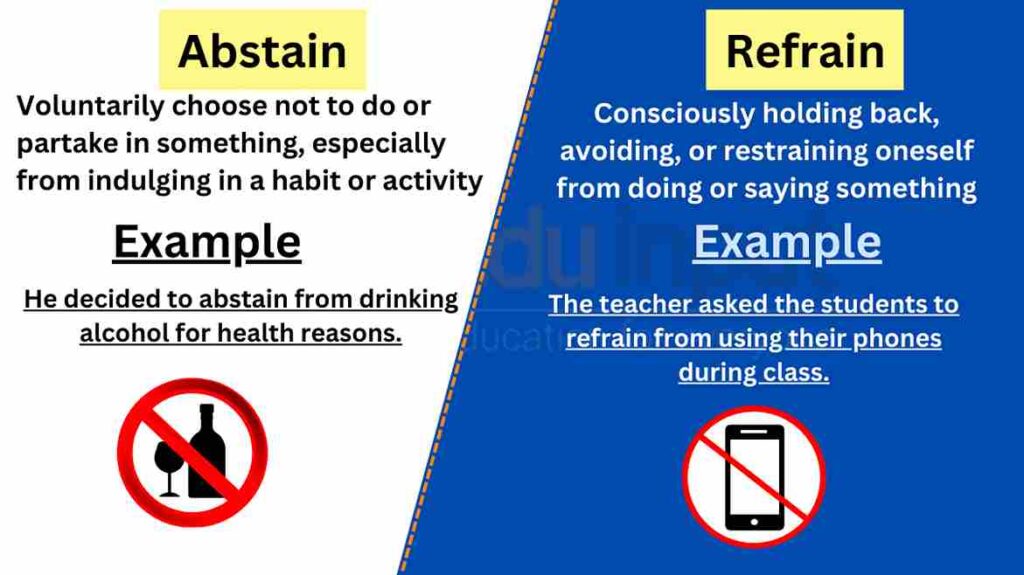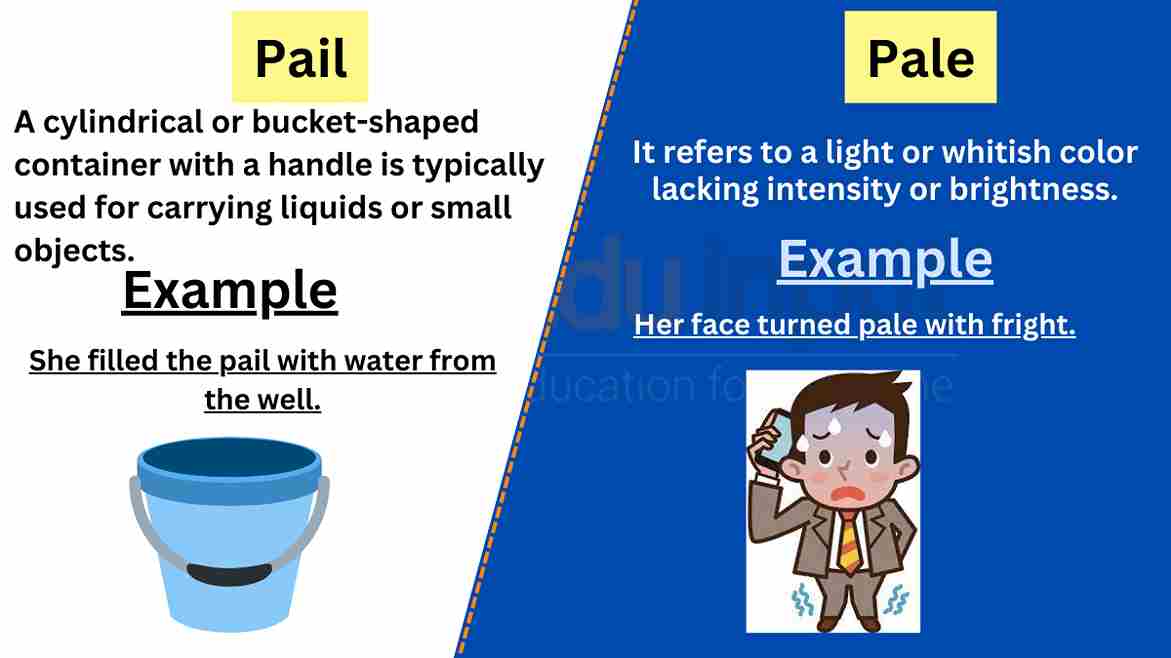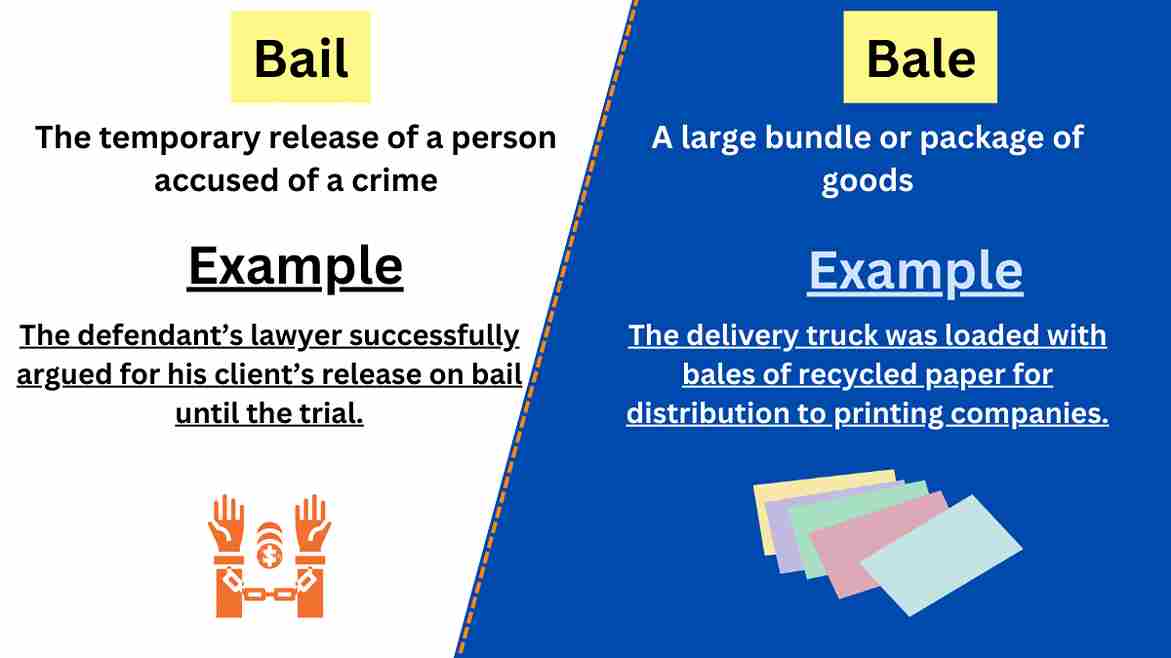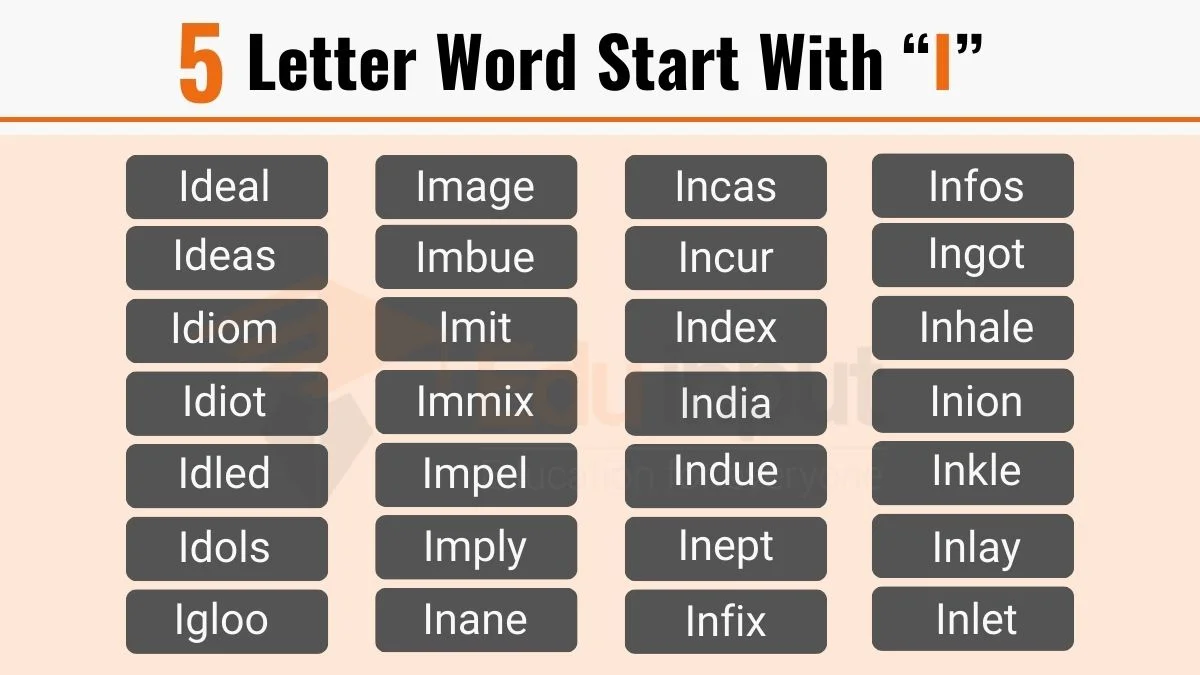Abstain vs Refrain-Difference between and Examples
“Abstain” and “refrain” are two words that have similar meanings but are used in slightly different contexts. In this article, we will explore the definitions, distinctions, and grammatical aspects of these words.

Meanings and Examples of Abstain
Abstain Meaning
Abstain is a verb. The meaning of abstain voluntarily choose not to do or partake in something, especially from indulging in a habit or activity.
Abstain Examples:
a) He decided to abstain from drinking alcohol for health reasons.
b) During religious observance, followers abstain from eating meat.
c) The athlete chose to abstain from consuming sugary foods to maintain peak performance.
d) They decided to abstain from voting in the election due to conflicting opinions.
e) The doctor advised her to abstain from strenuous exercise until her injury healed.
Refrain Meaning
Refrain is also used as a verb. The meaning of refrain is consciously holding back, avoiding, or restraining oneself from doing or saying something.
Refrain Examples:
a) She refrained from making any comments during the sensitive discussion.
b) The teacher asked the students to refrain from using their phones during class.
c) He refrained from expressing his disagreement to maintain a harmonious atmosphere.
d) The manager reminded the employees to refrain from discussing confidential information outside the office.
e) They had to refrain from laughing during the serious presentation.
Differences between Abstain and Refrain:
| Criteria | Abstain | Refrain |
| Meaning | To voluntarily choose not to do or partake in | To consciously hold back or avoid |
| Verb form | Abstain | Refrain |
| Noun form | Abstention | Refrain |
| Pronunciation | əbˈsteɪn | rɪˈfreɪn |
| Usage | Specific, often related to habits or activities | General, wide-ranging |
Grammatical Aspects:
As Noun
- Abstain: The noun form of “abstain” is “abstention,” which represents the act of abstaining or refraining from something.
- Refrain: “Refrain” does not have a noun form associated with it.
As Pronoun
- Abstain: “Abstain” is not used as a pronoun.
- Refrain: “Refrain” is used as a pronoun, specifically as a reflexive pronoun. For example:
She couldn’t help but smile at herself in the mirror, trying to refrain from laughing out loud.
As Verb
- Abstain: “Abstain” functions as a verb, indicating the act of choosing not to do or partake in something.
- Refrain: “Refrain” also serves as a verb, expressing the conscious act of holding back or avoiding something.
As Adjective
- Abstain: “Abstain” does not have an adjective form.
- Refrain: “Refrain” does not have an adjective form.
As Adverb
- Abstain: “Abstain” does not have an adverb form.
- Refrain: “Refrain” does not have an adverb form.
Usage in a Paragraph:
In a bid to lead a healthier lifestyle, she decided to abstain from smoking and junk food. It required determination and willpower to resist the temptation, but she knew it was for her long-term well-being. She also made a conscious effort to refrain from negative self-talk and instead focus on positive affirmations. The decision to abstain from harmful habits and refrain from self-sabotaging thoughts empowered her to make positive changes and embrace a more fulfilling life.
Understanding the differences between “abstain” and “refrain” is essential for effective communication. “Abstain” implies voluntarily choosing not to partake in something, often related to habits or activities. On the other hand, “refrain” conveys consciously holding back or avoiding certain actions or expressions. Recognizing these distinctions allows for a clearer expression of intentions and facilitates better comprehension in various contexts.







Leave a Reply